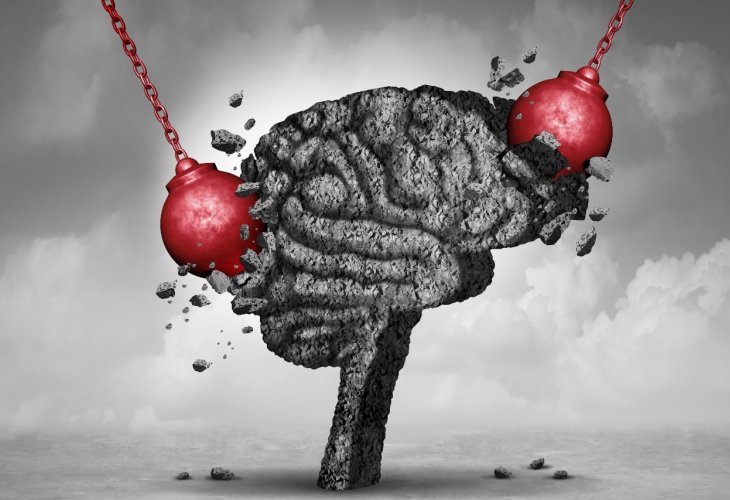Depression and Anxiety
Emotional Trauma: Understanding Symptoms and Effective Self-Healing Strategies
Learn how to recognize trauma-induced anxiety or depression, and discover practical self-care tools and therapeutic insights to help restore emotional balance after a crisis.
 (Photo: shutterstock)
(Photo: shutterstock)The term "emotional trauma" has become common in our daily vocabulary. Unfortunately, terror attacks, car accidents, soldiers and civilians in conflict zones have all led to many people suffering from trauma. Today we often use the term “trauma” to describe life events such as losing a job, divorce, or challenges at work or home.
One definition of trauma is a crisis or difficult event for which we lacked the proper tools to cope at the time. There is a well-defined list of high-stress events likely to trigger emotional trauma. Among the most intense are the death of a loved one, divorce, or job loss. Even events that are joyful, such as graduating high school or getting married, can be stressful enough to require professional help.
What trauma feels like
Anxiety triggered by emotional trauma is a natural stress response. The person may be overwhelmed by intrusive thoughts about what happened, worry constantly about the future, and struggle to relax or feel calm. It is also common to experience physical symptoms such as muscle tension, stomach discomfort, diarrhea or nausea, sweating, trembling, or a tingling sensation.
People experiencing trauma-induced anxiety often appear restless and overwhelmed. Some internalize everything, while others feel a strong need to talk about the experience nonstop. In both cases, this ongoing mental engagement with the traumatic event often worsens their emotional distress.
Others may experience depression following a traumatic event. Unlike the anxious individual who is visibly restless, a person with trauma-related depression may be extremely quiet, sad, and emotionally withdrawn. Things they once enjoyed now feel meaningless and dull. They may experience appetite changes, sleep disturbances, fatigue, and poor concentration. Functioning at work or in family life can suffer. Sometimes, people show both anxious and depressive symptoms, which is known as a mixed response.
How trauma is treated
There are several treatment paths. Some are conventional, rooted in psychology and psychiatry, while others are alternative. One increasingly popular method is CBT (Cognitive Behavioral Therapy). Another is self-guided healing which is the oldest and most natural approach.
Following a traumatic event, the body and mind are flooded with stress and anxiety that weren't released at the time of the incident. Both are now trying to regain balance, often through unexpected means. Self-care means giving the body-mind system permission to do what it does best: regulate and restore itself. Releasing stress through natural methods is part of this balancing mechanism, and the goal is emotional and physiological equilibrium.
Following are key principles of trauma-informed self-care:
1. Don’t block the body from releasing stress.
The body has many ways to let go of tension, such as shaking, yawning, crying, laughter, fatigue, or a strong need to move. These may feel like a loss of control, but they are signs of healing. Don’t resist them.
2. Slow down.
Take your time with actions and decisions. Moving slowly sends a signal to the body: “You’re safe now.” It reassures the nervous system that the emergency has passed and it can relax.
3. Postpone major decisions.
After trauma, we’re in survival mode. Any decisions made in this state are reactive and often unhelpful in the long term. Give yourself time to recover before making big decisions.
4. Avoid stimulants.
Skip coffee, cola, sugary drinks, and alcohol, which disrupt the nervous system’s natural rebalancing and make emotional noise louder.
5. Share with someone who truly cares.
Talk to someone who loves and respects you. Sharing your experience is a way of releasing stress and validating your feelings. Choose someone who can listen without judgment.
Sometimes, self-help isn’t enough. In such cases, don’t hesitate to seek professional support. What matters most is finding a therapist you trust, because the connection between therapist and client is a key to healing.
Orly Samira is a certified emotional therapist and CBT practitioner.

